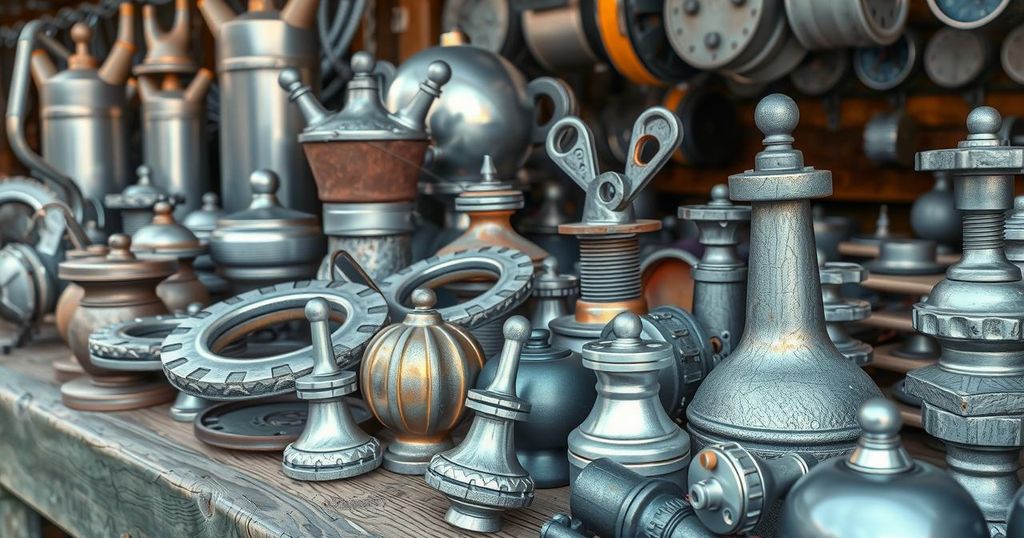India’s small engineering exporters are urging the government to lower import tariffs on select U.S. goods in response to the 25% U.S. tariffs on steel and aluminum, effective March 12. They seek to achieve favorable trade terms and ensure competitive pricing amidst rising costs and declining orders. The trade minister is currently engaged in discussions to negotiate these tariff reductions.
India’s small engineering goods exporters are calling on the government to reduce import tariffs on certain U.S. products in light of President Donald Trump’s impending steel and aluminum tariffs. Effective March 12, the 25% tariffs have raised concerns among Indian exporters regarding falling orders and increased costs. Pankaj Chadha, chairman of the Engineering Export Promotion Council (EEPC), highlighted that approximately $7.5 billion of India’s $20 billion annual engineering exports may be impacted.
The EEPC and other industry groups have requested significant tariff reductions on U.S. imports with limited domestic competition. By doing so, they hope to encourage the Trump administration to engage in bilateral trade negotiations, especially after Trump labeled India a high-tariff nation and warned of reciprocal tariffs commencing in early April. India’s Trade Minister, Piyush Goyal, is currently in the U.S. for trade discussions aimed at negotiating potential tariff reductions.
Proposed cuts include reducing the U.S. steel scrap import duty from 7.5% to nearly zero and lowering tariffs on nuts, castings, and forgings. Furthermore, concessions on select agricultural and manufacturing items are also in discussion to facilitate favorable terms in future trade dealings. However, exporters are concerned that India’s planned safeguard duty of up to 14% on steel imports, meant to protect local manufacturers, may exacerbate domestic prices and reduce margins.
In January, India’s engineering goods exports to the U.S. surged by 18% year-on-year to $1.62 billion, exceeding the overall sector growth of 7.44%. From April to January of the current fiscal year, exports to the U.S. rose 9% annually to $15.6 billion, driven by increased shipments of aircraft parts, machinery, and medical instruments. Chadha emphasized the critical need for continuous government support in export credit and technology to maintain competitiveness in the face of new tariffs.
Despite fluctuations in global engineering exports, which represent 25% of total merchandise exports, there was a recorded rise from $8.77 billion in January the previous year to $9.42 billion in January this year, though this figure was down from December’s $10.84 billion. Overall, cumulative exports from April to January increased by 9.82% year-on-year to $96.75 billion, as reported by the EEPC.
In summary, India’s small exporters face significant challenges due to impending U.S. tariffs on steel and aluminum. They advocate for the reduction of import duties on certain U.S. goods to negotiate more favorable trade terms. The outcomes of these tariff discussions, spearheaded by India’s Trade Minister, are critical for maintaining competitiveness and securing continued growth in engineering exports.
Original Source: www.hindustantimes.com






